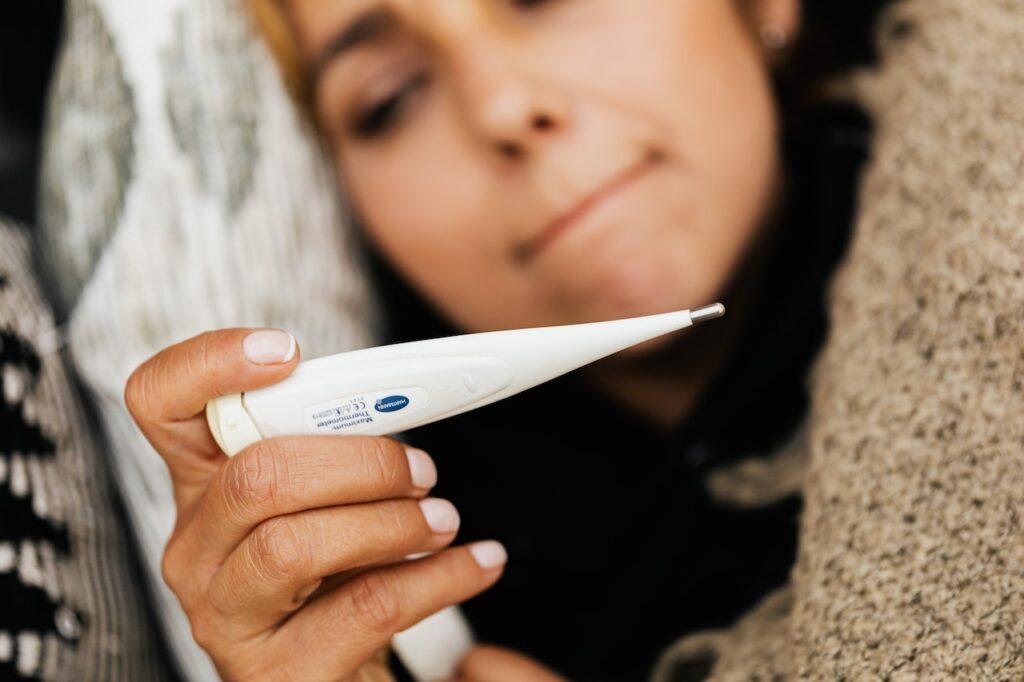Perimenopause: Why Millennial Women Are Not ‘Too Young’ To Start Thinking About It

Millennial women probably aren’t discussing the perils of menopause in their girlfriend group chats. Why would they? Even perimenopause symptoms don’t start showing up until at least 40, right?
Wrong!
I hate to be the one to break it to you but strap in Gen Y ladies— here’s why you need to be aware of the stealthy perimenopause symptoms that may impact your future plans.

Peri-What?
To make sure we all understand the difference, menopause is the final destination, while perimenopause is the road it takes to get there. Like most other physical transformations, it’s a process that unfolds over time but menopause hasn’t officially arrived until there’s been no sign of a menstrual cycle for at least 12 consecutive months.
There’s no way to know exactly how long each woman’s “road trip” to menopause will take, but perimenopause symptoms typically show up gradually and can last up to a decade. During this time, there are subtle but permanent transitions happening in your body. You produce less and less estrogen over time and these hormonal changes can cause physical and psychological responses like mood swings, night sweats, irregular periods, and hot flashes.
Why does any of this information concern Gen Y women? Because you’re currently between 25 and 40 years old and likely unaware of how perimenopause can derail even the best-laid plans.
3 Ways Perimenopause Can Affect Millennial
1. Finances Vs. Family
Millennial women are intentionally pursuing more lucrative career paths to ensure financial security. In fact, Forbes predicts millennial women to be “the most financially independent generation in history.” But the truth is, it can take time to get established in your career and hit those personal goals.
Raising a single child is currently estimated to cost almost $21,000 per year. Eighteen short years later, that’s an investment of about $378k (again… per child), so it’s understandable why so many millennial women are prioritizing professional and financial stability. Unfortunately, your body doesn’t really care if you’ve made Partner or hit your 6-figure income goals.

2. Biological Clock
Since millennial women are waiting longer to start families, this adversely means there’s a clock ticking on their viable eggs. Once perimenopause begins, women’s hormones tend to go a bit haywire and these irregularities decrease the quality of the eggs released during ovulation. Eventually, ovulation slows down and periods become unpredictable, so both quality and quantity take a hit.
According to the National Library of Medicine, fertility begins to decline around age 30 and becomes increasingly challenging after 35. There’s absolutely nothing wrong with waiting to have children, but millennial women need to be aware that perimenopause may not be on the same biological clock that they are.
3. Mental And Physical Impact
The physical and psychological symptoms of perimenopause can be seriously disruptive to your everyday lives. Factors like hot flashes, insomnia, migraines, and fatigue affect women just as much at home as they do at work and can really be the rain on your motivation parade. It can be tough enough to just show up to work some days during your period, but random appearances of these symptoms make it even harder to be effective when you’re not able to operate at your usual level.
From a mental health perspective, anxiety, depression, and mood swings can make it really tough to maintain your usual levels of activity and productivity. Not to mention how these can disturb your relationships and everyday interactions. Most perimenopause signals aren’t visible to those around you, but they’re definitely affecting you on all fronts. At work or at home, family, friends, even the guy working at the corner store can catch you at a bad time and take a little heat.

Being informed and proactive can empower millennial women to navigate perimenopause with confidence and embrace the changes it brings to your lives. Talk to your friends, family, and healthcare professionals to gain insight into what’s going on with your body. Prioritize your health, educate yourself about perimenopause, and don’t hesitate to seek support when needed.






